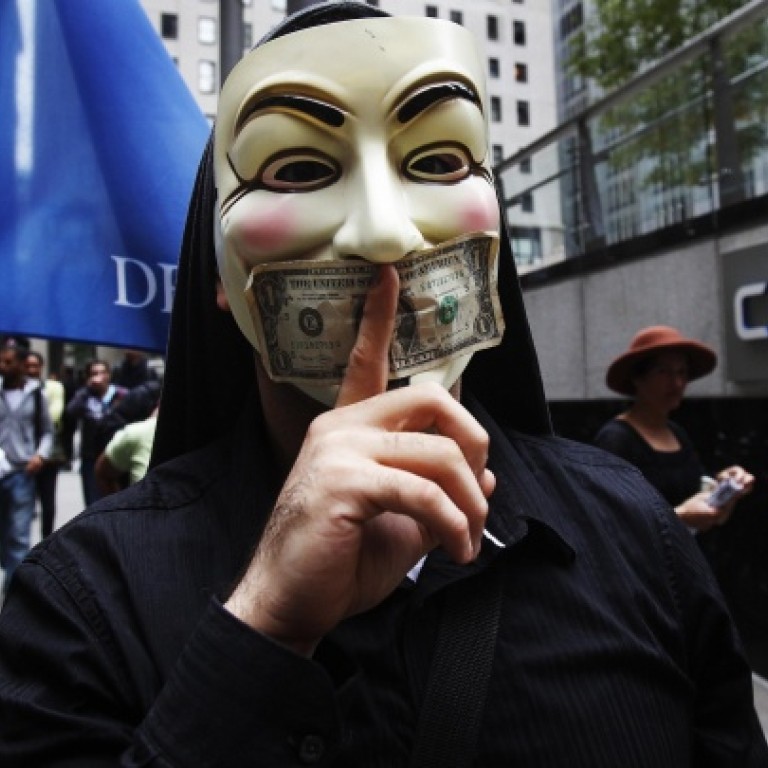
Civilisation as we know it isn't too big to fail
Kevin Rafferty considers the few who find profit in a reckless - and ruinous - global economy
What in the world is happening to this fragile planet? Jeremy Grantham, one of the most respected global investors, with US$100 billion under management, warns that "our global economy, reckless in its use of all resources and natural systems, shows many of the indicators of potential failure that brought down so many civilisations before ours".
He sees just two factors that could save the planet: declining fertility rates that may lead to the global population falling from a peak of just over 8 billion in 2045 to almost 6 billion by 2100; and progress in alternative energy.
Grantham says in his latest quarterly letter that our world is following the pattern of previous lost civilisations, including mismanagement, overuse and depletion of resources; costly unnecessary wars; a failure of moral spirit; increasing complexity of a growing empire with limited resources that becomes vulnerable to small shocks; and the overconfidence of being too smart to fail.
He is worth listening to because he built his investment reputation by steering clear of bubbles.
He warns that vested interests always defend the status quo and people prefer "optimistic propaganda to uncomfortable truths, wishful thinking rather than tough action … What is less common is what we have today: the near complete control of the government by the powerful beneficiaries of the current system."
Grantham calls his essay, "The race of our lives". He believes it will be a close-run thing whether rescue can come before our world commits suicide through the combination of rising temperatures, ocean acidification and destabilised weather for farming.
Some of the most powerful vested interests are the too-big-to-fail banks, which have got bigger since the last financial crisis.
The issues are exacerbated by the immense weight of meta-money, principally derivatives, compared to the real economy. The world's total gross domestic product is about US$70 trillion. Traditional financial assets, such as shares, bonds and bank debt total US$250 trillion, with the value of land adding another US$100 trillion.
But derivatives dwarf all of this, at US$700 trillion, according to the Bank for International Settlements. US Attorney General Eric Holder told the senate judiciary committee last month that he was afraid of prosecuting crime in the biggest banks for fear of undermining confidence in the US and world economies - but that is equivalent to the referee abdicating and handing the game over to the players.
Should we feel sorry for the investment bankers who claim that they are on the point of bankruptcy in earning only £1 million (HK$12 million) a year?
In eFinancialCareers, bankers and their friends have been lamenting that a million pounds or dollars is really only worth 600,000 when tax has eaten into it, and they have to pay for a house in the Hamptons or Woking, private schooling and holidays you can talk about with your peers.
Pity the poor souls working for Barclays, who have heavily deferred bonuses, so have to live on 400,000, less after tax.
It has got so bad that bankers are sharing tips on how to cut spending. Among the top 20 ideas: go on a clothes diet; sell your old stuff; cook your own food; start ironing; send your teenagers out to work; buy a Prius or cycle to work; and even, horror, enrol the children in the state school system.
In Britain, only the top 1 per cent earn more than £150,000 a year; in the US, the 1 per cent start at US$370,000. According to the British Home Office, the biggest earners outside banking are telecommunications directors, on £78,600 a year; consultant-level medical practitioners, who earn almost £75,000; doctors, £53,800; and airline pilots £49,500.
Weep for the poor bankers, weep for the world that they dominate. As Robert Johnson, executive director of the Institute for New Economic Thinking, laments: "The system of society in the United States is a money politics system." About 97 per cent of the derivatives system is controlled by six banks, which make US$35 billion a year from it. There is so much money whirling around that it is only a matter of time before there is another crash.
Grantham hopes China will ride to the world's rescue by slimming its wasteful infrastructure investment from 50 to 35 per cent of GDP and starting a massive 25-year commitment to alternative energy.
Is this whistling in the dark? The new leadership of Xi Jinping has not shown much ability to think globally except to demonstrate that China will not be pushed around. This week's assertion came across icy Himalayan wastes in Ladakh, where 30 Chinese soldiers were camped 19 kilometres inside disputed territory claimed by India, to howls of protest from Indian press and opposition.
It seemed an odd advance guard for the visit of Premier Li Keqiang to Delhi this month.

